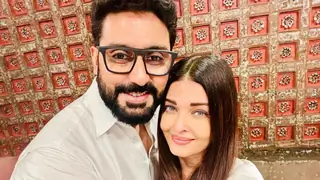Originally posted by: HearMeRoar
Point was not to say Bheeshma's oath was wrong. But he refused to let go even when he saw how badly things were going wrong. The most charitable interp possible here is that he put personal VANITY over the greater good.
In fact, there is no way he didn't know about some things and remained completely passive and LET things happen. Not just talking about dice hall here.
The man was prepared to let Hastinapuri go to Jarasandh. If Vyasa didn't come to the rescue, that's exactly what would've happened.
The man who refused crown to Dhritharashtra, the man who forced Yudhishtira as yuvraj, the man who forced division of the kingdom, THAT man had no power to stop lac house and the sexual assault on Panchali? The man who had spies in every corner by his own admission, the man whose minister, Vidura, knew of every Kaurava plot, didn't know about them? No way.
The man about whom Suyodhana said he couldn't fight without had no power to stop dice hall? No way.
The man who specifically told Karna to kill the Pandavas was their well wisher? No way
Not letting go of his vow is understandable because back then oaths were important and also his breaking the oath would not really mean things would be fine. Besides, as you said, he was very much a part of politics and he did have a say in decisions.
About the dice hall, cannot in anyway justify anyone out there because everyone knew how Duryodhan was and what could have happened. They obviously knew what could happen if Shakuni was playing. So not only Bhishma but everyone is to be blamed here.
Also, yes, his unfinching loyalty was towards the throne and as per his terms, going against the Hastinapur throne meant wrong for him. Was that his mistake? Yes. I am only saying pinpointing him as a villain is something I don't agree with because his deeds in particular do not point towards destruction like Dhritarashtra or Duryodhan's did. Duryodhan was evil, cunning and due to jealousy he tried poisoning someone as a CHILD, humiliated a woman in open court and planned to burn down his cousins alive. And all this he did in his right mind with clear wrong intentions. Here's the difference.
Bhishma was loyal towards the wrong side, yes. I agree with the fact that he didn't do anything about alot of things he could do something about. But if Karna is considered a loyal friend and that's a good trait because he was loyal to Duryodhan why can't Bhishma's deeds be seen in the same way.
Lastly, about the Dhrit bit. I don't see anything wrong in not letting a blind man be a king because as sad it is, and yes it's not his fault, but he is not capable. It's just harsh but true. Also we did see how bad a king Dhrit was. He was blind metaphorically too.





























